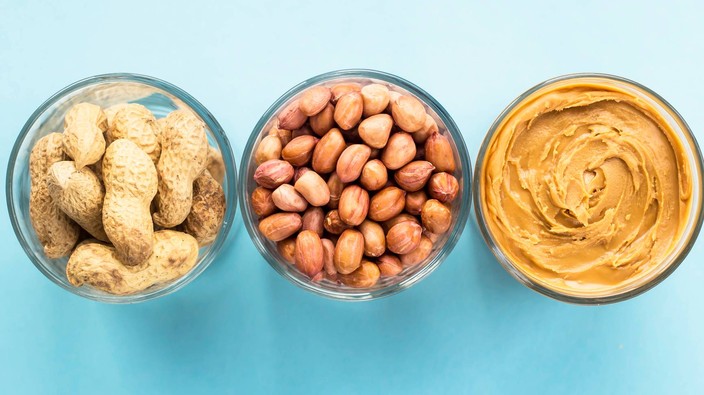should cancer patients avoid eating peanuts?
more research is needed, but a study links heavy consumption to risks in those undergoing treatment.

new research looks at a carbohydrate-binding protein called peanut agglutinin (pna).
getty
heavy consumption of peanuts by cancer patients may increase the risk of the disease spreading to other parts of the body, according to a new study that recommends leaving the legumes alone while undergoing treatment.the study, published in the journal carcinogenesis, found that a carbohydrate-binding protein called peanut agglutinin (pna) floods the bloodstream after ingesting peanuts and interacts with endothelial cells to produce cytokines. two particular cytokines — il-6 and mcp-1 — are known to promote the spread of cancer by causing endothelial cells to expressive a greater amount of surface cohesion molecules, making them an appealing target for spreading tumours.earlier work by lu-gang yu — the corresponding author on this study — found that as pna moves through the bloodstream it binds to a particular sugar chain found mainly in pre-cancerous and cancer cells and comes in contact with a larger protein on the surface of tumour cells. this interaction changes the protein in a way that makes cancer cells stickier and more likely to attach to passing blood vessels. it also fosters the accumulation of cancer cells into small clumps that extend their lifespan inside the human body. many epithelial cancers use the bloodstream as a highway to reach and attack other organs. carcinomas, which are malignancies of epithelial tissue, account for 80 to 90 per cent of all cancer cases.“although further research and investigation are still needed, these studies suggest that very frequent consumption of peanuts by cancer patients might increase the risk of metastatic spread,” yu said.previous research has shown that peanuts do not always have this effect on the metastasis of cancer, however, and the phenomenon may be limited by the amount and recency of consumption.“reassuringly, a large u.s. study reported no significant impact of peanut consumption on cancer mortality,” he said. “in another study, peanut consumption was reported to have no significant effect on prognosis in men with established prostate cancer. in our previous healthy volunteer study, substantial blood concentrations of pna were only seen transiently one hour or so after consumption of a large dose (250g) of peanuts, so it may be that ‘normal’ peanut consumption yielding lower pna concentrations is harmless.“nevertheless, the possibility remains that circulating pna, at least at the relatively high levels found shortly after a large “dose” of peanuts, could have a significant biological effect on tumour cells circulating at that time, with a potential for increased risk of metastasis. heavy or very frequent peanut consumption therefore might be better avoided by cancer patients.”dave yasvinski is a writer with healthing.ca
 2 minute read
2 minute read





